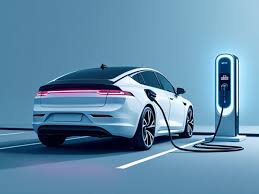Islamabad, Dec 13: In a recent roundtable, the Sustainable Development Policy Institute (SDPI) together stakeholders and industry professionals to talk about the future of electric vehicles (EVs) and how they could propel Pakistan’s economy.
According to a news release released here on Friday, the roundtable, “Electric Vehicles and Economic Growth: Industry Perspectives on Pakistan’s EV Transition,” emphasized the main advantages and difficulties associated with the nation’s transition to electric vehicles.
The conversation began with SDPI’s Ahad Nazir highlighting the close connection between EV adoption and sustainable economic growth. Nazir noted that Pakistan may gain a lot from the switch to EVs, especially in terms of lessening its reliance on foreign fuel, which has long been a financial strain on the nation.
“Developing a comprehensive plan that includes infrastructure development is crucial because the EV sector holds great promise for economic growth, job creation, and export opportunities,” he said. According to PRIED’s Rimsha Rehan, interest in EVs is rising in Pakistan’s automotive sector.
She did, however, draw attention to the pressing need for a customized energy vehicle strategy to guarantee the successful market integration of EVs. Rehan also drew attention to the increasing number of two-wheelers, which require a lot of imported oil and number about 24 million.
She recommended that “the most costly part of EVs, lithium-ion batteries, should be viewed as an essential product rather than a luxury item,” highlighting the need for more legislative assistance to increase EV accessibility.
The Baku Declaration on Urban Decarbonization and the Global Green Pledge established at COP29 are two international frameworks that are influencing the EV discourse, according to SDPI’s Head of Energy Unit, Engr. Ubaidur Rehman Zia. “The updated Nationally Determined Contributions (NDC) targets in 2025 will reflect Pakistan’s energy policies’ alignment with global decarbonization goals,” he said.
In addition to concentrating on EV technology, Zia emphasized the significance of creating the supply chains and infrastructure required to facilitate the shift. REMIT Lead Advisor Usman Khan gave a thorough rundown of Pakistan’s new Energy Vehicles Policy. He provided important data, such as the nation’s gasoline import bill for FY2023–2024 and the 11% annual growth rate in two- and three-wheelers.
The amount was $16.8 billion. Khan emphasized the substantial financial losses $22 billion a year, or 6% of Pakistan’s GDP caused by poor air quality. He said that in order to guarantee the broad adoption of EVs, the new policy, which is expected to lower the oil import bill by $65 billion by 2024, calls for a thorough incentive structure, ecosystem development, and raised public awareness.
The difficulties facing Pakistan’s EV market were discussed by a number of specialists. Consultant engineer Asad Mehmood talked about consumers’ misunderstandings about EV purchases and the requirement for financial aid. “There is a knowledge gap between bankers and consumers,” he clarified, urging the implementation of regional awareness initiatives to close this gap.
Dr. Basharat Hassan advocated for more efficient changes to the four-wheeled EV registration procedure. In order to make Chinese EVs more available to Pakistani consumers, he also recommended that the government lower import taxes on these vehicles, which are now less expensive.
Industry leader Hammad Bashir emphasized the significance of taking into account the complete EV value chain, from funding to production. Stressing that a thorough approach to policy rollout is required for a successful transition, he stated, “We are working with EV companies to connect them with banks and investors.”
To create a strong EV ecosystem in Pakistan, the roundtable’s participants agreed that the government, business community, and financial institutions must work together. With the appropriate laws, facilities, the nation’s environmental sustainability and job creation. The EV market is positioned to be a major factor in determining the direction of Pakistan’s automotive industry as the country continues its energy transition.









